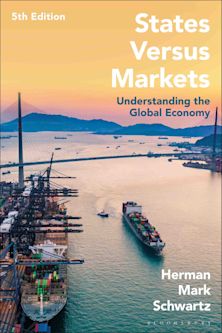Growing Fairly
How to Build Opportunity and Equity in Workforce Development
Growing Fairly
How to Build Opportunity and Equity in Workforce Development
This product is usually dispatched within 3 days
- Delivery and returns info
-
Free CA delivery on orders $40 or over
Description
Tested, practical ideas to meet current and future skilling needs of both workers and employers
The labor market in the United States faces seemingly contradictory challenges: Many employers have trouble finding qualified applicants for current and future jobs, while millions of Americans are out of work or are underemployed—their paths to living-wage jobs blocked by systemic barriers or lack of adequate skills.
Growing Fairly offers workforce development reforms that meet the needs of both workers and employers. Based on the experiences of hundreds of leaders and workers, the authors set out ten principles for designing a more effective and equitable system that helps workers obtain the skills necessary for economic mobility.
The principles outlined in the book argue for a more comprehensive view of the skilling needs of current and prospective workers. They spell out the attributes of effective programs and make the case for skill-based hiring, widely distributed performance data, and collaboration. The book emphasizes the importance of local action to overcome the structural barriers that challenge even the most determined would-be learners. Growing Fairly shows cross sector leaders how to work across organizational boundaries to change the trajectory of individuals struggling to make a living wage.
This is not a book of untested theories. Instead, it is written by practitioners for practitioners. Much of it is told through the voices of those who run programs and people who have taken advantage of them. While the issues the book addresses are profound, its take on the subject is optimistic.
Between them, the authors have spent decades searching out and supporting effective practices. Even more critically, they have learned how to knit competing agencies and organizations into cohesive systems with coordinated missions. Their practical ideas will benefit a wide range of readers, from practitioners in the field to students and scholars of the American labor system.
Table of Contents
Foreword: Mayor Keisha Lance Bottoms and Dr. Michael Lomax
Acknowledgments
1. Introduction
2. Start with People, Offer Meaningful Choices
3. Listen, Respond, Get Personal
4. Support Learners, Remove Barriers
5. Contextualize Learning
6. Bridge to Employment
7. Use Skills as Currency
8. Commit to Transparency
9. Make Places Work
10. Organize for Collaboration
11. The Houston Story: Putting It All Together
Notes
Index
Product details
| Published | Feb 22 2022 |
|---|---|
| Format | Paperback |
| Edition | 1st |
| Extent | 280 |
| ISBN | 9780815739487 |
| Imprint | Brookings Institution Press |
| Illustrations | 4 tables |
| Dimensions | 223 x 155 mm |
| Series | Brookings / Ash Center Series, "Innovative Governance in the 21st Century" |
| Publisher | Bloomsbury Publishing |
Reviews

ONLINE RESOURCES
Bloomsbury Collections
This book is available on Bloomsbury Collections where your library has access.



































